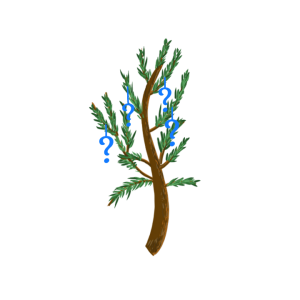Unschooling, self-directed learning, self-directed education, natural learning, consent-based education, whole life learning, child-led learning, worldschooling, delight-directed education – these are all terms that are sometimes used to point to the same general idea of living and learning.
Many people agree that the most common of these – unschooling – often doesn’t capture what’s happening in their lives. Some don’t like the prefix “un,” preferring to focus on what they ARE doing rather than what they’re NOT. Others don’t love having the word “school” included. For families whose children haven’t been to school, they don’t feel as if they’re having to undo anything in particular. While the parents may have deschooling they’d like to do, the kids are simply continuing to live their lives.
Yet in the end, unschooling seems to be the term most fall back on.
It might be helpful to point out that we don’t need to choose a label in describing who we are or what we do. Labels can be limiting and lead to assumptions and judgements. In fact, I think that’s what the unschooling label often does. However, labels can also help us find the information and people we’re looking for as well as offer a framework for understanding principles and gaining ideas. This is also something the unschooling label does. We get to choose if, how, and when we use it. We’re also free to change our terminology and the way we do things as we go along.
Something that’s interesting to me is to look at the various aspects or ways of framing unschooling and the way each term speaks fairly specifically to a different aspect of the philosophy.
Actually, I’ll flip it in order look at the different terms first and what each captures in my mind as I think of it.
Whole Life Learning …
I’ll begin with this one because it’s the one I use and it continues to be a fit for me. That being said, it has its limitations as well.
Whole life learning points to the aspect or principle of unschooling that we are learning from everything in life and that one thing is as valuable as another. The word “whole” can be seen as expressing just that – a movie or video game can be as worthy as a book, a visit to see grandparents can be as valuable as working on handwriting. It gives us a sense of wonder and fullness.
It basically says, “Let’s see what life brings because it ALL has something to offer. … practical skills, technology, nature, sports, the arts. We don’t value academics above other things. We think it all has worth.”
However this term doesn’t directly indicate anything about choice, respect, consent, who is directing the learning, the natural readiness/ process of learning, family connection, or whether there is joy or delight in the process. These are all also aspects and/or principles implied under the unschooling umbrella that aren’t captured within this one term and I notice the same as I think about the others.
Self-directed education describes very clearly that a child’s educational path is determined by their wishes and choices. This doesn’t mean they don’t ask for support or that it’s not offered. There can be a lot of parental involvement and partnering, but the child has agency over the overall direction of their education.
Self-directed learning is as it sounds – learning things a child chooses and decides on (this can also happen with various amounts of parental support). It’s often used interchangeably with self-directed education, but I think of it slightly differently. Self-directed education seems like a broad lens, indicating choice over the big picture of one’s education, whereas self-directed learning could be pieces within that framework, or not. For example, a child choosing to do an online high school credit is operating within the framework of self-directed education, but the course material and schedule they’re following may not offer much space for actual self-directed learning.
Natural learning points to the aspect of unschooling that children learn things … well, naturally and that even without formal lessons or curricula, children learn amazing amounts. It also speaks to how children beautifully come to things at their own pace and readiness, rather than at a prescribed, linear order. It tells about the “how,” but not as much about family connection or the specifics of consent, which are also pieces considered foundational to the unschooling life.
Consent-based education speaks to the importance of kids learning and living in such a way that they have a strong voice and that their perspective and preferences are respected and listened to. It highlights that they are capable of understanding themselves and their choices. The term tells us a lot about the “how” of relationships and family dynamics, but less about the “how” and “what” of learning.
Child-led learning describes an aspect of unschooling that is one of the most commonly assumed – the idea that kids lead their own educational path. While this might be what unschooling looks like in a particular family – there’s no exact definition – it isn’t universally the case. This can be associated with “doing whatever they want.” While this might be what unschooling looks like in a particular family – there’s no exact definition – it isn’t universally the case. Most people begin to realize it’s usually more nuanced than that, yet, it can still be part of it and may be the piece that stands out for a particular family.
Worldschooling can mean many things, but there are lots of unschooling families who also have a travel lifestyle and live and learn around the world from the varied, rich experiences they have. This speaks to the unschooling aspect of learning through real-life experiences and gaining a hands-on education. While worldschooling gives a sense of the “what” and the “where” (we know it’s often not at home), it doesn’t express the “how” or the relational part of unschooling.
Delight-directed learning refers to an education centred around the things that bring a child joy and, of course, delight. Beauty, fun, engagement – all the things. This sounds as if it describes self-directed learning because if you’re directing your education your “self,” wouldn’t you be choosing joyful and fun things? Often you would be, so through that lens it describes unschooling well. However, if you’ve been unschooling deeply for some time, you know that kids don’t always do only joyful, delightful things. In fact, they often direct their learning toward hard and unpleasant things if they serve a purpose for a higher goal.
To curate or not to curate …
There is another aspect of unschooling worth looking at that makes it tricky to name. Frequently, unschooling is associated with a lack of curricula or academic study of a subject on its own. However, sometimes a curriculum or concentrated study of a “subject” is decided upon by either parent or child as either a chosen path or simply a resource. So, for me, it’s less about whether curricula or academic study are part of things and more about what is chosen and helpful. Choosing a course or curriculum might fit the terms self-directed and consent-based, but not necessarily unschooling or natural learning (depending on how we define natural learning, lol!).
A child choosing to go to school could fit the definition of “self-directed education” but maybe not “unschooling.” It’s interesting how tightly we sometimes want to hold onto terms. One of my kids chose to go to school for his last couple of years of high school and someone I was talking to was insistent that this was a form of unschooling because it was by choice. I could see what they meant and I definitely thought of it as self-directed education because he was directing his own path by deciding to go, but, believe me, it didn’t feel like unschooling; the teaching and material was heavily prescribed and assigned. Now, the year after graduation was one that he used to work, travel a bit and deschool, so yes, it could actually very easily have fit the term of unschooling.
On the flip side, a parent could regularly curate the day and strew in a very planned way – I would almost see this as “preparing the learning environment” – without using any curricula or school materials. This could be seen as “delight-directed learning” and also “unschooling” from the perspective that it could be very rich and fun and because grades, tests and curricula aren’t being used, but it isn’t always particularly self-directed or natural and may or may not be consent-based.
There’s also the question of radical unschooling. Terms like consent-based can fit in very well with what is commonly understood to be radical unschooling, which is the idea that children have agency beyond academics and are also trusted and respected to make decisions about lifestyle things such as sleep, food, how they spend their time, helping around the house, etc (albeit with available partnering and support from parents). When I talk about “whole life learning,” the word “whole” can reflect the radical part of “radical unschooling” in the sense that it expands the idea of life learning to all things – not just ones that might be seen as traditional school skills. It says to me that the whole of life offers opportunity for learning and that, for example, a child coming to understand their own eating patterns and preferences is as important (if not more) than their geography knowledge.
None of this is right or wrong, but simply interesting to consider. Looking at the different terms has helped me parse out the various principles of unschooling, acknowledging there are actually several angles. It has made clearer why we often have challenges not only explaining to others, but even identifying for ourselves who we are and what we do!
So, what to do? What term should we use?
Each term only really addresses one or a limited aspect of what we think of as unschooling, so they are likely not that much more complete than saying “unschooling” but that’s okay, because they draw out the part that is significant or most fitting for us at a given time. That aspect may change over time and so, too, can the term we choose to use.
For now, I’m still using the word “whole life learning” which seems particularly relevant to me now that my kids are past school age.
How about you? What term/terms for you?
Enjoy this post? Please share.

